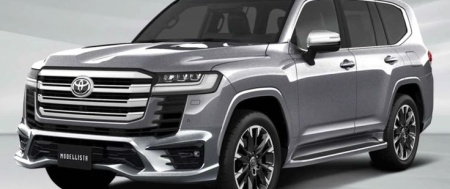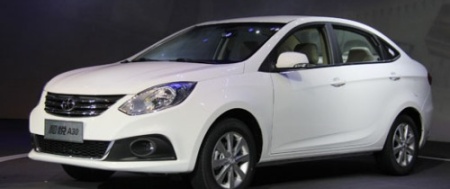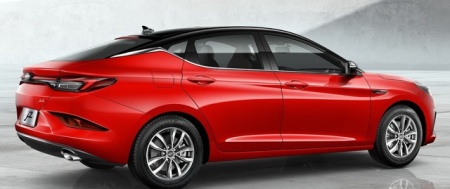Kazakhstan, the largest landlocked country in the world, has experienced rapid economic growth in recent years. This growth has led to an increase in disposable income and a rise in consumer demand for the best cars to import. While the domestic automobile industry is developing steadily, there is also a significant market for imported cars in Kazakhstan. Below, we will evaluate the market demand for the best cars to import in Kazakhstan, exploring the factors driving this demand and the challenges faced by international automakers in capturing this market.

- Economic Growth and Rising Disposable Income: Kazakhstan has witnessed robust economic growth fuelled by its rich natural resources, particularly oil and gas. This growth has resulted in a substantial increase in disposable income for many Kazakhstani households. As a result, the demand for personal vehicles has soared, with consumers seeking more comfortable, advanced, and prestigious cars. Imported cars often cater to these aspirations, offering a wide range of models, advanced features, and luxurious options that appeal to the growing middle and upper classes.
- Limited Domestic Production: While Kazakhstan does have domestic automobile manufacturers, their production capacity is limited compared to the demand. The major Kazakhstani carmakers primarily focus on producing lower-priced vehicles targeting budget-conscious consumers. The limited availability of high-end and luxury vehicles from domestic manufacturers has created a gap in the market, which imported car manufacturers are keen to fill.
- Wide Variety and Advanced Features by a Car Export Company: Importing cars from UAE offer a wide variety of options to Kazakhstani consumers. International brands have a global presence, offering diverse models that cater to different preferences and budgets. Whether it’s compact city cars, SUVs, sports cars, or luxury sedans, imported car manufacturers provide a range of choices that appeal to various customer segments. Moreover, imported cars often come equipped with advanced features and cutting-edge technology. Safety features, infotainment systems, and driver-assistance technologies have become increasingly important to consumers in Kazakhstan. International automakers, with their focus on research and development, are often at the forefront of incorporating these advanced features into their vehicles, thus attracting customers who prioritize safety and technology.
- Prestige and Status: Prestige and status play a significant role in consumer preferences for importing cars from UAE. Owning a prestigious imported brand symbolizes wealth, success, and social status. Luxury car manufacturers such as Mercedes-Benz, BMW, and Audi have gained considerable popularity among the affluent class, as these brands are associated with elegance, craftsmanship, and exclusivity. Importing these vehicles allows Kazakhstani consumers to showcase their affluence and social standing.
- Brand Perception and Quality: Imported cars are often associated with higher quality and reliability in the minds of Kazakhstani consumers. International brands have established a reputation for superior craftsmanship, technological innovation, and durability. This perception contributes to the demand for imported cars as consumers seek vehicles that offer long-term value and a positive ownership experience.
- Limited Availability of Specialized Vehicles: Kazakhstan’s domestic automobile industry focuses primarily on producing mass-market vehicles. However, there is a growing demand for specialized vehicles such as electric cars, hybrid models, and off-road vehicles. International automakers, with their expertise in these niche segments, can meet the specific needs and preferences of consumers who are looking for eco-friendly options or vehicles suited for rugged terrains.
- Access to Global Trends: Imported cars often represent the latest global trends in automotive design and technology. Kazakhstani consumers who value staying up-to-date with the latest advancements are drawn to imported vehicles that feature modern aesthetics, innovative features, and state-of-the-art engineering. By importing cars, consumers can access cutting-edge trends and technologies that may not be readily available in the domestic market.
- Resale Value: Imported cars tend to hold their value better compared to domestically produced vehicles. This factor contributes to the demand for imported cars as consumers consider the potential resale value as an important aspect of their purchasing decision. The prestige associated with certain imported brands, coupled with their reputation for retaining value, makes them an attractive investment for Kazakhstani car buyers.
- Availability of After-Sales Service: International car manufacturers often establish authorized service centers and dealerships in major cities of Kazakhstan to provide reliable after-sales support. This availability of service networks reassures consumers that their imported vehicles will be adequately maintained and serviced. The presence of well-established service centers also instills confidence in potential buyers, as they know they can rely on professional technicians trained by the manufacturers themselves.
- Cultural Influences and Globalization: Kazakhstan, like many countries, has experienced increased exposure to Western culture and lifestyle, which includes the prominence of international car brands. As globalization continues to shape consumer preferences, the desire for imported cars aligns with the aspiration for a modern and cosmopolitan lifestyle. The ownership of an imported car can be seen as a reflection of globalized tastes and aspirations.
- Challenges and Opportunities: While there is a strong demand to import cars to Kazakhstan, international automakers face various challenges in capturing this market. One significant challenge is the high import taxes and customs duties imposed by the Kazakhstani government. These taxes often make imported cars significantly more expensive than domestically produced vehicles, making it harder for international manufacturers to compete on price. Moreover, bureaucratic procedures and import regulations can further complicate the process to import cars to Kazakhstan. However, these challenges also present opportunities for international automakers to establish strategic partnerships with local distributors or explore options for local production. By setting up assembly plants or joint ventures in Kazakhstan, automakers can not only overcome the high import taxes but also create jobs, transfer technology, and contribute to the local economy.
The market demand for the most reliable luxury cars in Kazakhstan continues to grow due to economic prosperity, rising disposable income, and consumers’ desire for a wide variety of options, advanced features, and prestigious brands. Despite the challenges posed by import taxes and customs duties, international automakers have the opportunity to tap into this market by understanding local preferences, establishing partnerships, and exploring avenues for local production. As Kazakhstan’s economy continues to thrive, the market for the most reliable luxury cars is likely to remain strong, presenting a lucrative opportunity for international automakers to expand their presence in Central Asia.













